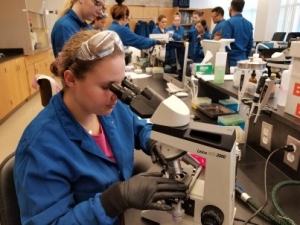The Center for Diverse Leadership in Science (CDLS) is proud to announce their inaugural faculty fellows. CDLS, created by Dr. Aradhna Tripati (Institute of Environment and Sustainability – IoES; Atmospheric and Oceanic Sciences- AOS; Earth, Planetary, and Space Sciences – EPSS; and Institute for Geophysics and Planetary Physics), was created to recruit and retain underrepresented people in Environmental Science. In addition to providing research and outreach opportunities, CDLS brings faculty together to engage in professional development, including workshops offered by CEILS and BruinX. In this way, the center aims to empower their fellows in increasing diversity, equity and inclusivity in STEM and beyond. Twenty-two Faculty Fellows were selected across disciplines, for their dedication to implement inclusive practices and for their commitment to equity in the field: Alan Barreca (IoES), Daniele Bianchi (AOS), Jacob Bortnik (AOS), Justin Caram (Chemistry and Biochemistry), Kyle Cavanaugh (Geography), Robert Eagle (IoES, AOS), Jennifer Jay (IoES; Civil and Environmental Engineering), Peter Karieva (IoES), Abby Kavner (EPSS), Jasper Kok (AOS), Yung-Ya Lin (Chem & Biochem), Carolina Lithgow-Bertelloni (EPSS), Karen McKinnon (IoES; Statistics), James McWilliams (AOS; IoES), Jonathan Mitchell (AOS; EPSS), Stephanie Pincetl (IoES), Margot Quinlan (Chem & Biochem), Deepak Rajagopal (IoES; Urban Planning), Pablo Saide (AOS), Benjamin Schwartz (Chem & Biochem), Andrew Stewart (AOS), and Tina Treude (EPSS; AOS; Ecology & Evolutionary Biology).
The application period for 2019-2020 CDLS faculty fellows will open Spring of 2019. Please stay tuned to our website: www.ioes.ucla.edu/diversity for further details.

